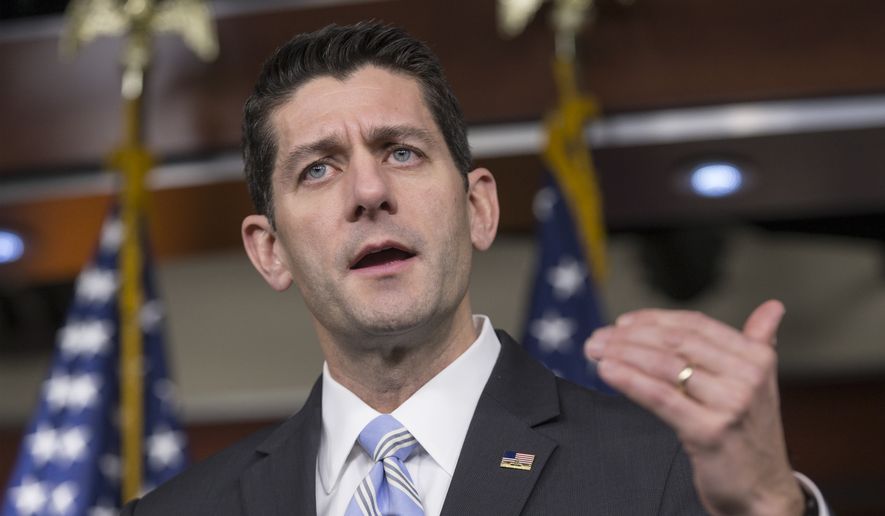More than 200 members of Congress asked the Supreme Court on Monday to protect religious colleges, charities and other nonprofit groups from Obamacare’s birth control rules, saying the justices must defend a tradition of religious liberty that stretches back to the Pilgrims at Plymouth Rock.
Two pro-life Democrats joined 205 Republicans in urging the court to reject President Obama’s rules requiring employers to provide free contraception as part of their health plans.
“Religious freedom is a fundamental guarantee of the U.S. Constitution, and its place as the first and foremost protection in the First Amendment is no accident,” said the brief signed by House Speaker Paul D. Ryan and 32 GOP senators, including all three of those running for president — Sens. Ted Cruz of Texas, Rand Paul of Kentucky and Marco Rubio of Florida.
Reps. Daniel W. Lipinski of Illinois and Collin C. Peterson of Minnesota were the only Democrats to join a long list of House Republicans who signed on.
The Supreme Court will hear in March from religiously affiliated plaintiffs such as the Little Sisters of the Poor, an elder care charity operated by an order of nuns. The Catholic Church teaches that contraception — and, therefore, complicity in providing it — is a sin, and the nuns say the government should not force them to act contrarily to their religion.
The religious nonprofits are pushing for a full exemption from the regulation, an outgrowth of the Affordable Care Act of 2010 that requires employers to provide 20 types of FDA-approved contraceptives in their plans without a copayment or else pay crippling fines.
Stung by objections, the Obama administration created an “accommodation” for religious nonprofits, allowing them to sign an opt-out form that shifts the burden of providing coverage to their insurance companies or to the government.
The sisters and other plaintiffs say the opt-out form still leaves them complicit, but the mandate’s defenders say the justices would be setting a dangerous precedent if they concluded an opt-out is too burdensome.
In lower court cases the Justice Department compared the nonprofits to conscientious objectors who duck the draft and then want to block the government from naming someone else to fight.
But in their brief Monday, the members of Congress said they enacted the Religious Freedom Restoration Act in 1993 to deal with these kinds of conflicts. The RFRA, signed by President Clinton, says the government can’t burden someone’s religious practice unless there’s a compelling reason and no alternative that’s less burdensome.
“Whether taking the steps required by the supposed ’accommodation’ in fact makes petitioners morally complicit is therefore not for courts to determine,” members wrote. “The petitioners sincerely believe they would be morally complicit if they take the actions HHS requires.”
A series of religious groups and scholars backed the sisters in their own briefs file with the court Monday, including the U.S. Conference of Catholic Bishops and a coalition of Orthodox Jewish rabbis.
The rabbis argued their lesser-known customs and beliefs — they refuse to wear garments made from both wool and linen, for instance — would be at risk if the government wins this case.
“Catholics and Catholic ideas are by no means uncommon in America,” the rabbis wrote. “If the government cannot understand the nature and diversity of Catholic religious objections, how could it possibly appreciate the comparably obscure objections that might be raised by Orthodox Jews?”
The religious groups lost most cases at the lower appeals court level, though one circuit court did side with them — creating the kind of split that makes cases ripe for Supreme Court review. The justices already shielded certain corporations from the contraception mandate in 2014, citing RFRA.
• Tom Howell Jr. can be reached at thowell@washingtontimes.com.




Please read our comment policy before commenting.